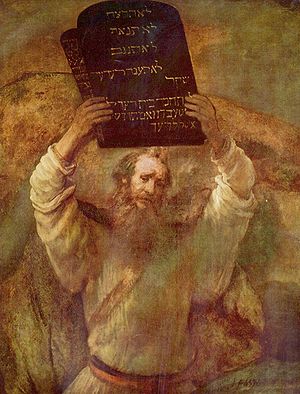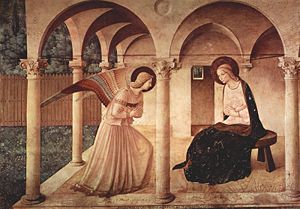The Gospel reading from this past Monday, June 26, 2017, was from Matthew 7:1-15 about the well-known analogy about judging others hypocritically. This lesson could also be about not letting the actions of others blind you to your abilities of living God‘s will. First, the actual text:
Jesus said to his disciples:
“Stop judging, that you may not be judged.
For as you judge, so will you be judged,
and the measure with which you measure will be measured out to you.
Why do you notice the splinter in your brother’s eye,
but do not perceive the wooden beam in your own eye?
How can you say to your brother,
‘Let me remove that splinter from your eye,’
while the wooden beam is in your eye?
You hypocrite, remove the wooden beam from your eye first;
then you will see clearly
to remove the splinter from your brother’s eye.”
By now we all know we shouldn’t judge others considering that we all have our own flaws. I think many of us understand Jesus’ teaching and work hard to avoid judging others. Note, this does not mean we don’t care for others and help them become better people living in God’s grace. But we must do so caringly knowing that we also must work out many of the same sins on our own souls.
Let’s take a different look at this passage. Perhaps Jesus was also instructing his disciples to understand the greater influence one’s personal actions can have over the actions of others. What if the “beam” is not someone’s faults, but rather the amount of influence we give others for our situation in life? We are, in a way, judging others according to their perceived effect on our lives. And many times, we place that judgment in a disproportionate way. So many of us tend to look at others as the main source of frustration or disappointment in life, even when they have a minuscule amount of influence, while overlooking the much larger effects of our own actions.
Just look at how much time and energy we place on the influence of politicians, companies, media outlets, etc. Many of us consume news and show more concern over what President Trump tweeted than who needs help, attention, and kindness in our own family or circle of friends. We give politics so much attention even when the day-to-day soap opera of government has actually relatively little effect on our happiness. I’m not saying we shouldn’t be involved in politics and not hold our government responsible for their actions. But we need to find a balance and not tip towards government and news being EVERYTHING to us. That diminishes our own ability to find peace and happiness in our lives. It becomes our “beam” that prevents us from helping others.

I think the Second Joyful Mystery of the Rosary, The Visitation, communicates this idea of not letting others blind you to your ability to control your well being. Mary had every reason to dwell on how others might perceive her pregnancy outside of marriage. It could have consumed her to the point of inaction out of fear and embarrassment. After all, things weren’t really going the way she had planned. But instead of dwelling on the thoughts and actions of others, she went out and did God’s will which, at the time, was being with her cousin Elizabeth. Mary was able to remove any “beams” in her eyes which would have prevented her from clearly seeing God’s plan for her and acting accordingly.
When we pray the rosary, let us ask God to clear our minds of the fear, hatred, and overall energy spent on the people and events that really don’t matter in the grand scheme of our lives. We need to ask God to block out the noise that can distract us from doing His will (turning off the TV is a good place to start). We should ask Mary through our rosary prayers for the strength to imitate her and remain focused on serving God instead of living in fear of the influence others have on our overall happiness. When we take out the distractions which act as the “beams” in our eyes we can then see more clearly and help others better see how God is calling them to receive His grace.






















 This rosary meditation focuses on the Third Sorrowful Mystery — The Crowning of Thorns. The Roman soldiers mocked Jesus by dressing Him in royal purple and crowning Him with thorns (Mk. 15:17). They then mocked Him and pretended to pay Him homage (Mk. 15:19). Would the soldiers have acted so cavalier and arrogant if they truly understood who it was they were mocking? While we are not as brazen as those soldiers, we often mock Jesus by giving lip service to our faith. Instead of faithfully following Jesus, we too often dishonor Him by putting the fleeting treasures of this life in front of the treasures waiting for us in
This rosary meditation focuses on the Third Sorrowful Mystery — The Crowning of Thorns. The Roman soldiers mocked Jesus by dressing Him in royal purple and crowning Him with thorns (Mk. 15:17). They then mocked Him and pretended to pay Him homage (Mk. 15:19). Would the soldiers have acted so cavalier and arrogant if they truly understood who it was they were mocking? While we are not as brazen as those soldiers, we often mock Jesus by giving lip service to our faith. Instead of faithfully following Jesus, we too often dishonor Him by putting the fleeting treasures of this life in front of the treasures waiting for us in 